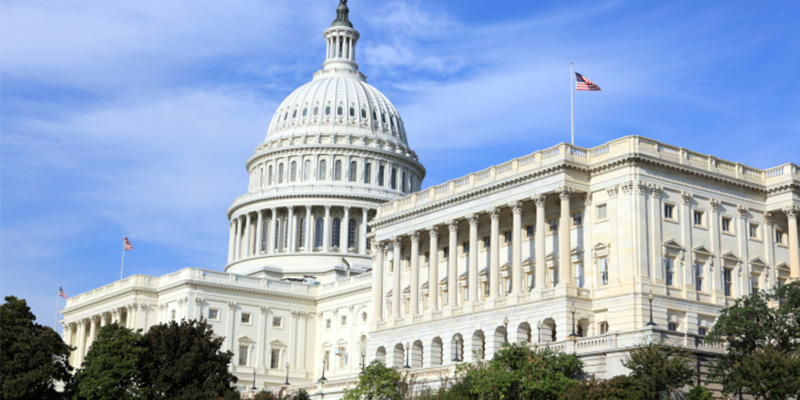For many, the Memorial Day weekend is the unofficial start of summer. For those elected officials in the U.S. House of Representatives and Senate, the return to the nation’s capital from the Memorial Day congressional recess is the bell signaling the final lap in the race to pass legislation before the politics of a midterm election shut down all meaningful legislative activity. One focus for Democrats will be salvaging remnants of President Joe Biden’s “Build Back Better” agenda, which originally included ambitious social spending programs and climate change initiatives, financed by a number of tax increases.
Democrats and the Biden administration had envisioned using the budget reconciliation process to pass most of their agenda in the Senate with only Democratic votes, since a reconciliation bill is exempt from the Senate’s filibuster rules and can pass with a simple majority vote. But opposition from centrist Democrats, most notably Senators Joe Manchin (D-WV) and Kyrsten Sinema (D-AZ), to much of the proposals as well as the overall size of the package has prevented its advancing in the Senate.
But even as many Democrats doubt that any of the legislation will be enacted, and believed that Memorial Day was the deadline to come up with an agreed-upon bill, Manchin is continuing his discussions with Senate Majority Leader Chuck Schumer (D-NY). Recent statements by Manchin have given many Democrats hope that a deal is still possible. While Sept. 30 is the actual deadline date for passage of a reconciliation bill for FY 2022, most Democrats believe a bill needs to be passed before the August recess.
Beginning in early 2021 and continuing through 2022, NAIOP and its real estate allies fought hard to ensure that proposals harmful to the commercial real estate industry would not be part of any reconciliation package. Namely, we successfully lobbied against provisions that would have:
- Eliminated Section 1031 like-kind exchanges for commercial real estate;
- Dramatically increased capital gains taxes, nearly doubling them for some taxpayers, retroactive to May 2021;
- Increased taxes on real estate pass-through businesses;
- Eliminated capital gains tax treatment for real estate partnership carried interests; and
- Made changes to estate tax law that would have resulted in much higher taxes being assessed on a decedent’s property, due immediately upon death.
These proposals were not included in a House-passed version of the reconciliation bill. With inflation and the deficit being his biggest concerns, Manchin has indicated he would support a smaller bill focused on energy and climate-change provisions acceptable to him, and which increased taxes on the wealthy and large firms. He has previously supported tax increases to the corporate tax rate, which he would increase to 25% from the current 21%, and some proposals that would have harmed commercial real estate, but has been at odds with Sinema on these issues. While including any of the more controversial tax increases that failed to pass the House in a Senate-version of reconciliation is probably unlikely, NAIOP continues to meet with elected officials and their staff to advocate on behalf of the industry.
Despite the guarded expressions of optimism, the challenges to passing reconciliation legislation remain, even though the process is designed to empower the Senate’s majority. While people cite excessive partisanship in Washington as an impediment to action, the reality is that intraparty factionalism is the larger problem, coupled with very thin governing majorities that require near unanimity to pass legislation. Members of Congress fear losing in a primary more than in a general election, where the extremes in each party have greater clout. Democrat progressives have already defeated one prominent conservative “Blue Dog” Democrat, Kurt Schrader of Oregon, in that Democratic primary, and are supporting challenges to other Democrats. Republican incumbents have been grappling with Trump-supported challengers in their own primaries, with a number of Republicans choosing to retire rather than face losing their primary. In this dynamic, anyone who is seen as betraying their principles and “caving” to the other side is a target for defeat.
Of course, with Biden’s approval ratings hovering near 40%, Democrats are desperate to have another major legislative achievement they can tout before the midterm elections. Republicans, for their part, will do very little to help them reach that goal. The key will be whether Democratic progressives can live with a watered-down version of the legislation that will likely be the product of Manchin’s negotiations with Schumer.














